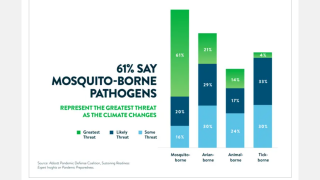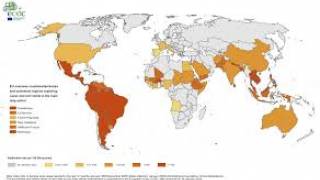Breast Milk Found Protective Against Zika

The benefits of human milk are mediated by multiple nutritional, trophic, and immunological components, able to promote infant’s growth, maturation of its immature gut, and to confer protection against infections, says a new study focused on the Zika Virus (ZIKV).
Despite these widely recognized health benefits, breastfeeding represents an important mother-to-child transmission route of some viral infections.
And, as previous studies have shown, some flaviviruses can occasionally be detected in breast milk, but their transmission to the newborn is still debated.
To clarify this issue, a new study’s conclusion published in PLOS on October 7, 2020, supports the use of fresh milk (or from donor banks) as the food of choice for nutrition and protection of newborns in a possible context of a new ZIKV epidemic.
Zika infections have been associated with a variety of neurological impairments, including microcephaly, in infants born to infected mothers.
These researchers demonstrated that human milk is endowed with anti-ZIKV activity at all maturation stages and that it acts by altering virus attachment to the host cell.
This activity is mostly due to non-specific bioactive factors, including extracellular vesicles and glycosaminoglycans.
These researchers also demonstrated that human colostrum exerts an antiviral action against two different ZIKV strains, the HPF2013, and the MR766, belonging to the Asian and African lineage respectively.
These results indicate that breast milk could play a protective role against either the microcephalic Asian strains, that have caused the latest epidemics and the African strains, that have shown to be more infectious in vitro and in vivo but have not caused any recently reported human case.
Breast milk composition is extremely complex, individual-specific, and variable according to the stage of lactation. It includes macro- and micronutrients and a wide variety of non-nutritional bioactive components.
Amongst the latter, secretory IgA, toll-like receptors, lactoferrin, lactadherin, oligosaccharides support the development of the immature immune system of the neonate and confer intrinsic protection against infections.
It is likely breast milk would protect a newborn from a mother's infection. Congenital Zika syndrome occurs during fetal life and this discussion does not apply to that.
ZIKV has caused a series of epidemics in the Americas, Asia, and the Pacific in the past decade and it is now considered an important public health concern. To date, 84 countries and territories have reported autochthonous transmission of ZIKV.
During 2020, the US Centers for Disease Control and Prevention (CDC) have not reported any locally-acquired ZIKV cases in the continental USA. As of April 2020, there have been 21 travel-related ZIKV cases confirmed in the USA.
Furthermore, there is no CDC authorized antivirals or vaccines currently available against ZIKV, and the only way to prevent infections is to avoid mosquito bites.
Zika vaccine candidates are in various stages of clinical studies, which are listed on this PrecisionVaccinations webpage.
ZikaNews publishes research-based news.
Our Trust Standards: Medical Advisory Committee

























